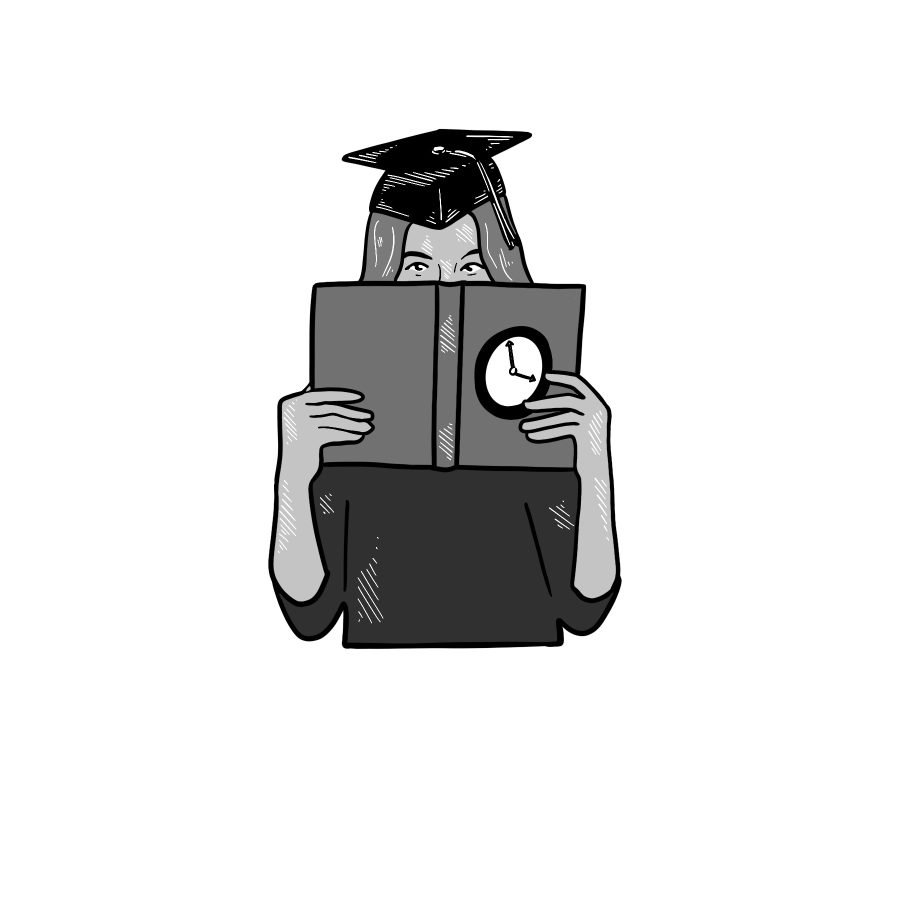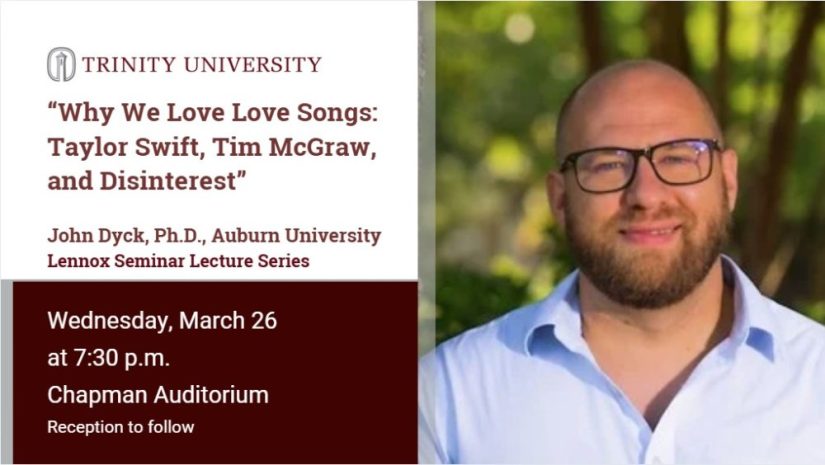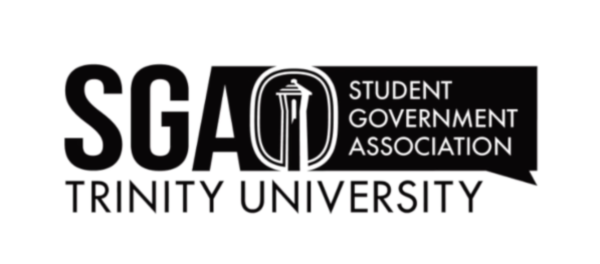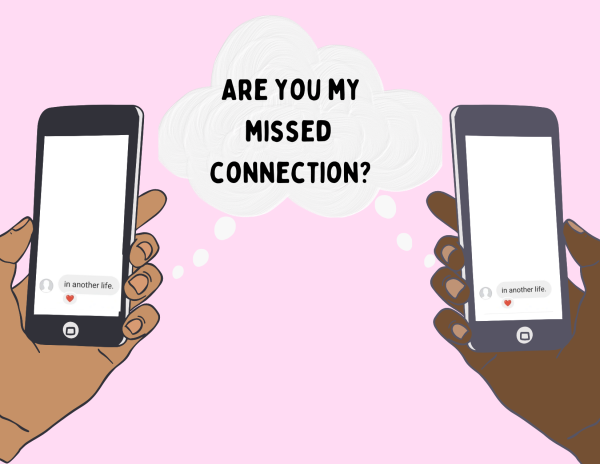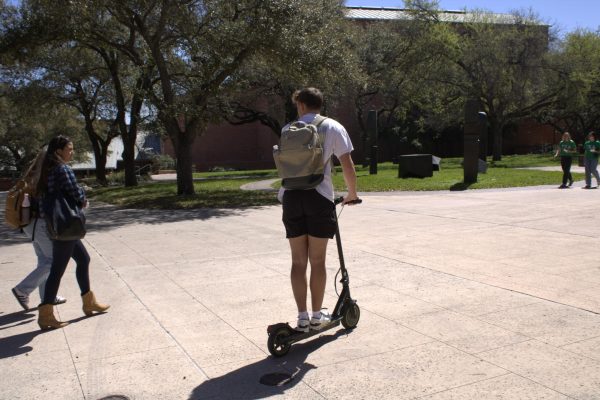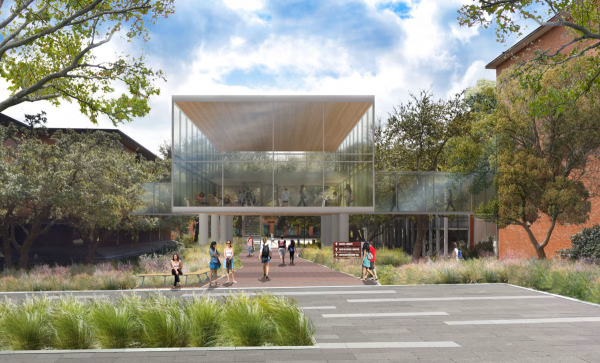Time to reflect: Archives plan events for seniors
Time capsule and senior storytelling event hope to highlight student experiences
To end the year, the university is conducting two projects with the purpose of giving graduating seniors a space to reflect on their past and share their experience at Trinity. The time capsule is a continuation of a tradition that began in 1991, where Trinity would collect items that graduating seniors wanted to include in a physical time capsule that would be opened up at their 20th reunion.
The senior storytelling initiative adds an interactive layer to the time capsule. Graduating seniors could share their story with the archives through a live presentation or interview conducted by students on Thursday, April 27, or by handing in a narrative that they wrote about their college experience that can be put into the time capsule. This project began last year for the graduating class of 2022 to express how their college experience was affected by COVID.
Once the storytelling collection is through with the review process, student workers and volunteers help to create full-text transcriptions of the interviews as well as make timestamps and finding guides to add a navigational aspect to the collection for the general public.
Each year, the time capsule has had varying levels of submissions. In 2019, alumni relations struggled to gain student participation in the projects, so the time capsule was handed over to the Trinity University Archives Student Advocates (TUASA) upon its creation the following year.
Digital submissions are accepted through a Google Form and are stored on the archives website. The physical time capsules hold objects that students submit and are kept in the first floor of the library in cubbies that are opened at the 20th reunion and displayed at that time.
Ever Whitlock, junior history and ancient Mediterranean studies double-major and vice president of TUASA, emphasized that the time capsule is a way for students to document their time at Trinity.
“It helps encapsulate student life at Trinity. It’s created by the students for the students, instead of being put together by administration in an attempt to portray student life,” Whitlock said.
Since the time capsule has been a tradition on campus for many years, the archives are running out of space to hold the time capsules.
The archives have now come to the point where they must evaluate what people submit in the time capsule and ensure that what is submitted is personal to students or representative of that time.
Abra Schnur, the university archivist, emphasized that student engagement is important to make the time capsule representative of student experiences at Trinity.
“We want people to be interested in submitting to the time capsule and get people thinking about what they’re putting into it,” Schnur said. “There’s potential to have that time capsule have more value that represents a truer experience for an entire class than print material created by the university.”
The senior story project is a collaborative effort between the department of communication, the school of business, the university archives and student involvement. Jamie Thompson, the associate dean of students, was inspired by the NPR StoryCorps project, where people from NPR travel the country with a storybooth and listen to the stories people want to tell.
Thompson gathered colleagues from various skill sets to assist with incorporating a project reminiscent of StoryCorps at Trinity.
“The purpose of the event is to showcase and highlight the various experiences and learning moments and times of transformations that our students undergo while they’re college students,” Thompson said.
For the live portion of the senior story project, the seniors sharing their narratives were coached by JJ Lopez, general manager of KRTU, and Mario Gonzalez, professor of marketing. Lopez and Gonzalez’s passion for storytelling allows them to help students prepare their narratives for the live event.
“I work closely with students on how to tell their story in front of the public,” Lopez said. “There’s a way in which you can frame your story to make it a little extra interesting and spicy.”
Gonzalez added that students are too quick to say that they don’t have interesting stories to tell.
“We all have the ability to tell stories within us but some of us are not aware of the structure of how to put together a story that will be compelling and interesting,” Gonzalez said. “Everybody has a lot of interesting stories to tell. You just gotta learn how to make the best out of them and how to make good justice of them.”
Sena Saygili, senior neuroscience major and storyteller at the event, emphasized that she wanted to share her story because of how she’s grown through the trials COVID-19 caused in her life.
“I’m at a point now where I’ve gotten past the challenges that the pandemic brought, even though COVID is still around. It allowed me to have a mindset change where I’ve realized that even when bad things are happening there’s potential to see the good and grow from what you’re experiencing,” Saygili said.
Daphne Tett, senior English major, knew that she wanted to participate in the senior story event due to her experience writing and performing for others in theatre. “I like to write and I’ve been in theatre for a long time, so when I noticed this storytelling event was going on I knew that was something I wanted to do,” Tett said.
Gonzalez, Lopez, Thompson and Schnur all hope to increase storytelling participation for the event next year, and they encourage all students to listen to the seniors reflect on their time and learn from them.
“I hope we build a culture of storytelling and begin to build a culture of creating space for sharing our stories of transformation. This event is part of building a culture where we learn from one another, be vulnerable and share,” Thompson said.
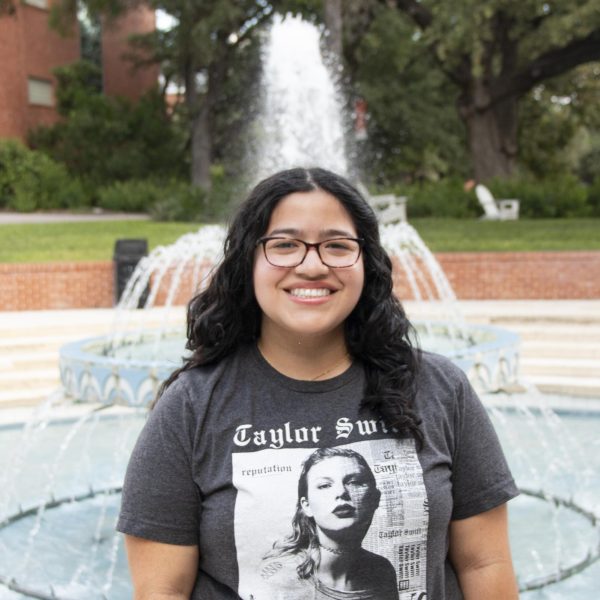
Hi! My name is Monica Martinez (she/her), and I’m a Junior human resource management and communication double major. I am a news reporter for the Trinitonian...

